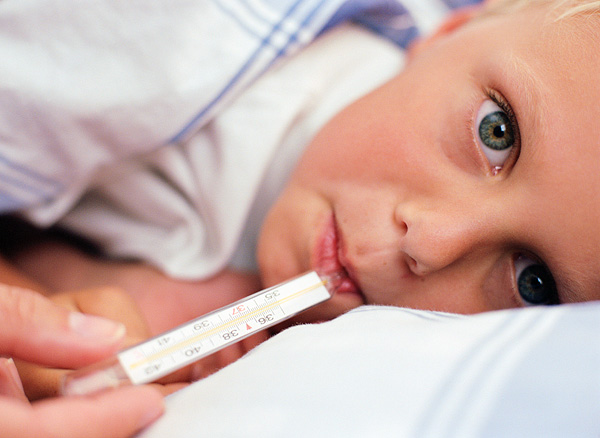Do You Need to Shower When You Have Fever
It's reasonable to think that taking a shower when you have a fever is a good way to bring your temperature down, however, it is a little more complicated than that. Let's take a look at the things you need to consider when you have a fever and are searching for ways to cool down.
Your body produces a fever as a way to fight infections and other types of illness, and to that end fever is not a disease or illness in itself but rather a symptom of something else going on in your body. So long as your temperature is not extreme it can be very useful in fighting infections so the best idea is to reduce your fever to a point where you can remain somewhat comfortable.

Taking a shower when you have a fever can be beneficial, however, you must be very careful not to bathe in cold water and never in icy cold water when you're unwell. Tepid water either in a shower, bath or a sponge bath is the best way to help reduce fever without shocking the body. Should you begin to shiver whilst showering you should increase the temperature a little as the shivering is a sign your body is attempting to increase its temperature.
The reason cold water or ice treatments don't help is thought to be because the blood flows away from the skin's surface and that can cause your body to trigger a reaction of increasing its temperature - essentially creating the opposite effect of what you're aiming to do. A gentle approach with luke warm water is the best way forward.
Another thing to consider when you're experiencing fever and planning on taking a shower is to take medication that reduces fever before hopping into the shower. The medication is thought to help regulate the body's temperature, which will help reduce the risk of your temperature rising during your attempts to actually reduce it. A shower of five to ten minutes is sufficient but never take a shower if you are feeling dizzy or are generally unstable on your feet as this will pose a slip or fall risk to you.
Furthermore, fever that is very high can be a serious risk too so it's very important, especially in young children, that the body's temperature is checked every two to three hours. With regular checks you can track whether the remedies you're using to reduce your fever are working or not. You should always consult your medical professional for advice pertaining to your health and any symptoms of illness you are experiencing.

So as you can see, showering when you're experiencing a fever can help as long as you keep the water temperature luke warm and avoid cold water showers. That way you can help your body fight infection without you having to feel completely awful, which a high temperature quite often does. Wearing light clothing, taking lots of fluids and having plenty of rest are other ways to help yourself heal. Before you know it you'll be back on your feet and enjoying life once again.
Tauseef Hussain is a media blogger. You can follow him on twitter @uesf4u
More to Read:
Previous Posts:








